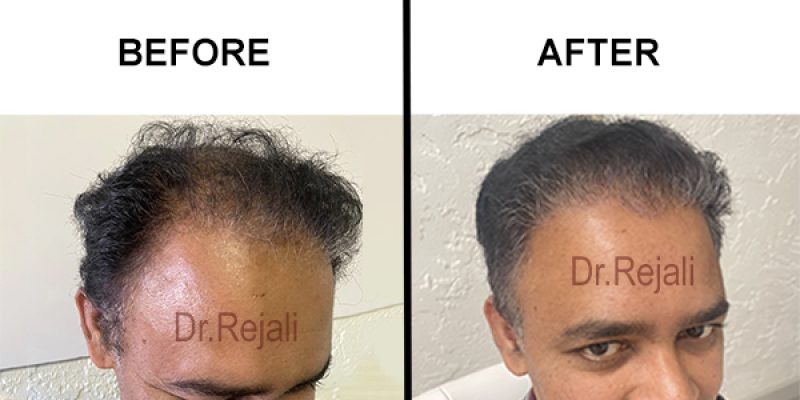Hair loss is a common concern for many people, and while genetics, hormones, and medical conditions often play a role, your diet also has a significant impact on the health of your hair. Just like your skin, your hair reflects what you eat. At Rejali Medical, we believe that a balanced diet is a key part of any hair restoration strategy—whether you’re using medical treatments or natural methods.
In this post, we explore how nutrition affects hair growth and which foods can help prevent hair thinning and support healthy hair.
Hair is one of the fastest-growing tissues in the human body, but it’s also non-essential, meaning your body prioritizes other functions first when nutrients are limited. This makes hair highly sensitive to poor nutrition. Deficiencies in certain vitamins, minerals, and proteins can slow hair growth, weaken strands, and even cause excessive shedding.
1. Protein
Hair is made mostly of keratin, a type of protein. Without enough dietary protein, hair can become dry, brittle, and more likely to fall out.
Best sources: Eggs, chicken, turkey, legumes, tofu, Greek yogurt, nuts.
________________________________________
2. Iron
Iron helps red blood cells carry oxygen to your cells, including hair follicles. Low iron levels (anemia) are a leading cause of hair loss, especially in women.
Best sources: Red meat, spinach, lentils, pumpkin seeds, quinoa.
________________________________________
3. Zinc
Zinc supports cell repair and oil production around hair follicles. A deficiency may lead to scalp dryness and hair shedding.
Best sources: Oysters, beef, chickpeas, cashews, whole grains.
________________________________________
4. Vitamin A
This vitamin helps your scalp produce sebum, a natural oil that keeps hair moisturized. However, too much vitamin A can also lead to hair loss—balance is key.
Best sources: Sweet potatoes, carrots, dark leafy greens.
________________________________________
5. Vitamin D
Low levels of vitamin D are linked to alopecia and poor follicle health. This nutrient may help create new hair follicles and regulate growth cycles.
Best sources: Fatty fish (salmon, mackerel), egg yolks, fortified foods, sunlight.
________________________________________
6. Biotin (Vitamin B7)
Biotin plays a key role in the production of keratin. Although deficiencies are rare, increasing biotin intake may help strengthen hair and nails.
Best sources: Eggs, almonds, seeds, avocados, bananas.
________________________________________
5. Vitamin D
Low levels of vitamin D are linked to alopecia and poor follicle health. This nutrient may help create new hair follicles and regulate growth cycles.
Best sources: Fatty fish (salmon, mackerel), egg yolks, fortified foods, sunlight.
________________________________________
6. Biotin (Vitamin B7)
Biotin plays a key role in the production of keratin. Although deficiencies are rare, increasing biotin intake may help strengthen hair and nails.
Best sources: Eggs, almonds, seeds, avocados, bananas.
________________________________________
7. Omega-3 Fatty Acids
These healthy fats nourish the scalp and promote strong, shiny hair. They also have anti-inflammatory properties that support scalp health.
Best sources: Salmon, chia seeds, flaxseeds, walnuts.
A good diet doesn’t just support overall health—it’s one of the foundations of strong, healthy hair. At Rejali Medical, we recommend a holistic approach to treating hair loss. Combining clinical treatments like hair transplants or PRP therapy and stem cell therapy with proper nutrition gives you the best chance at long-term hair recovery.
